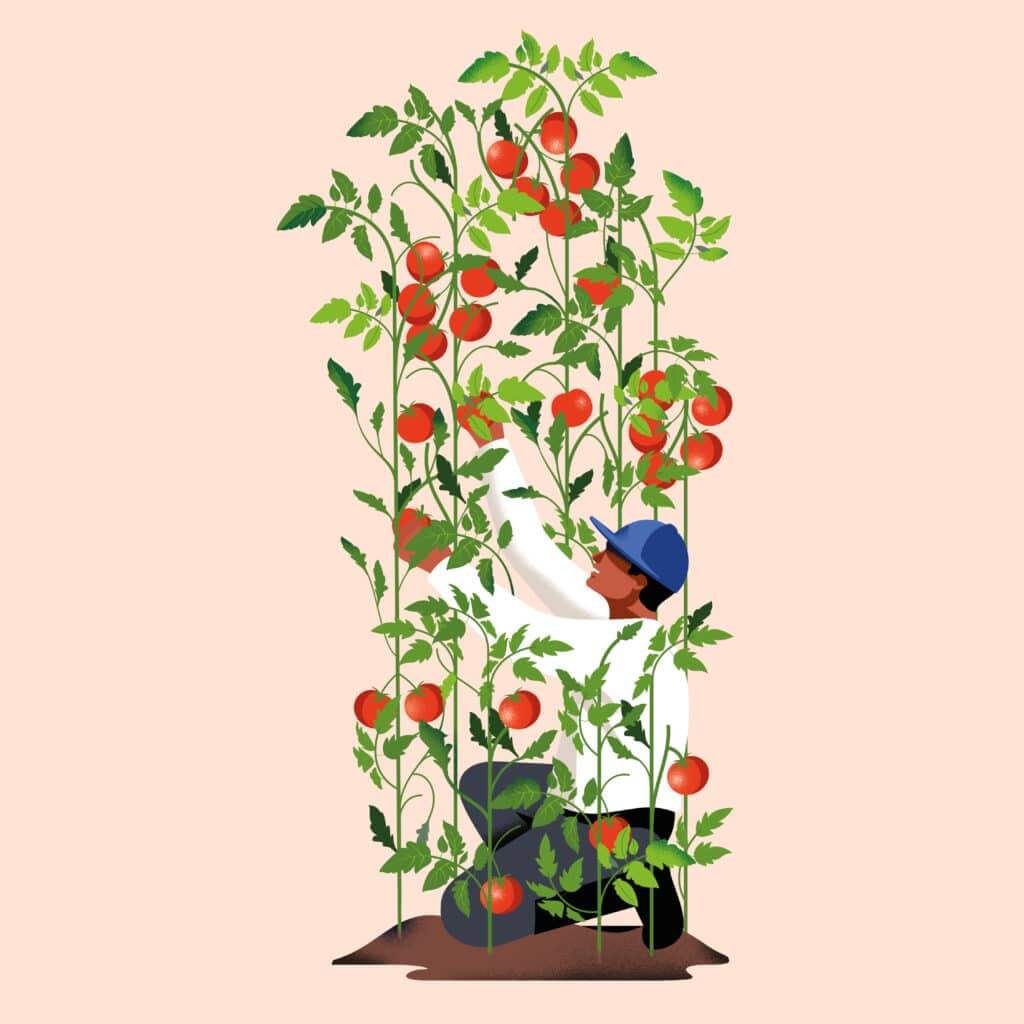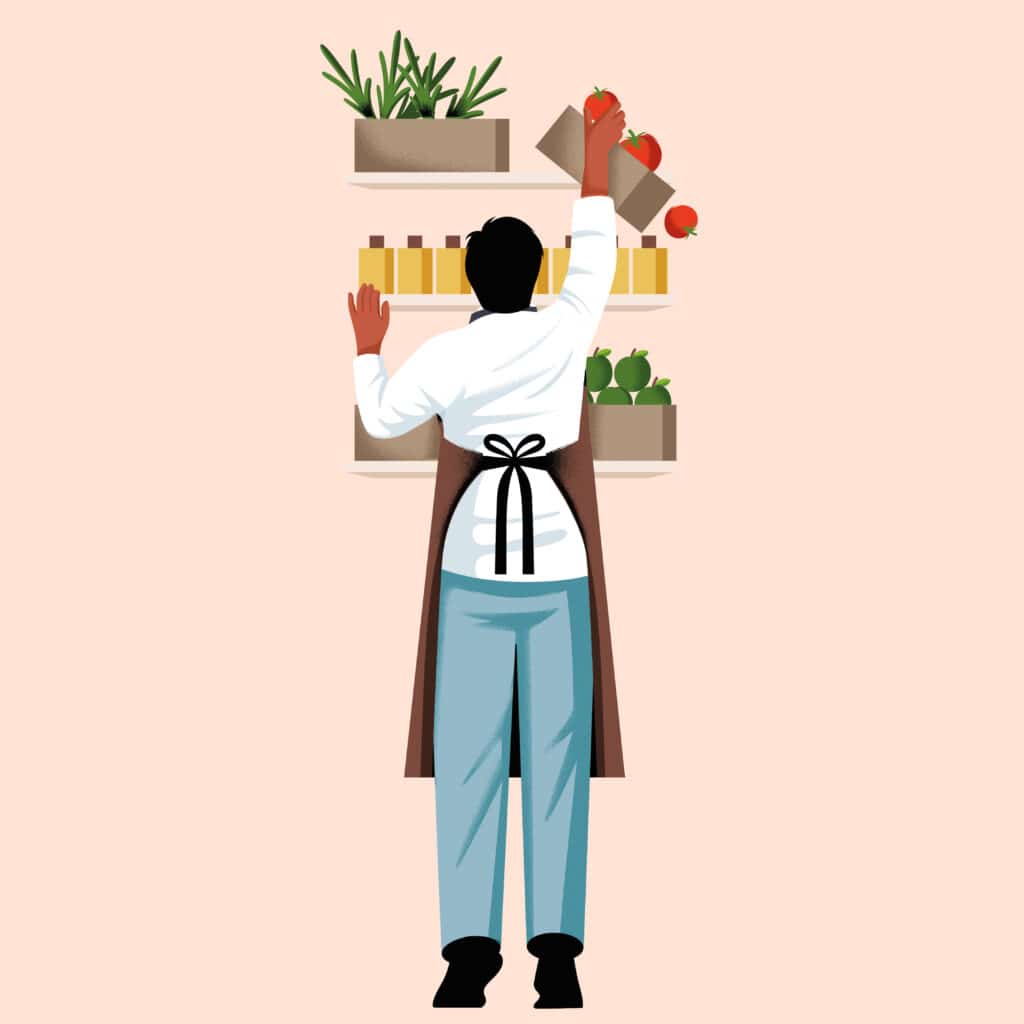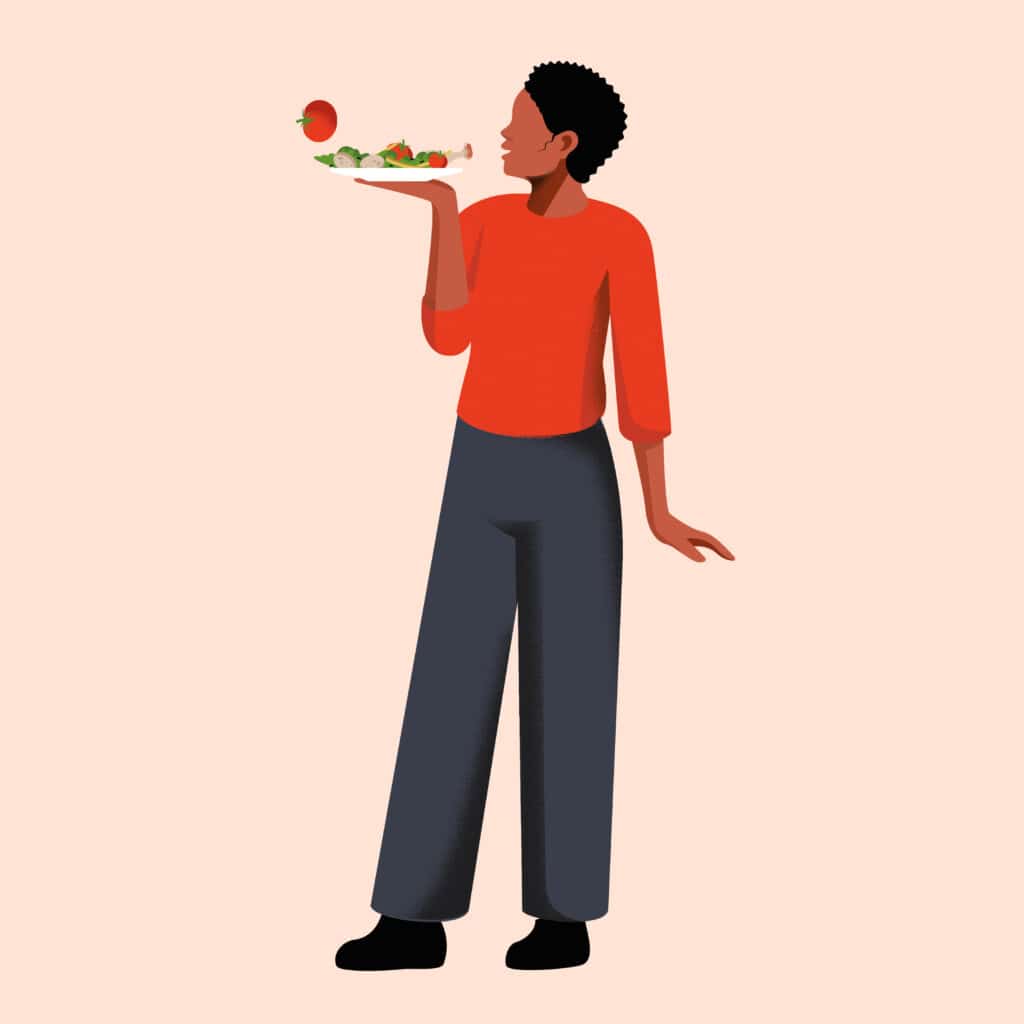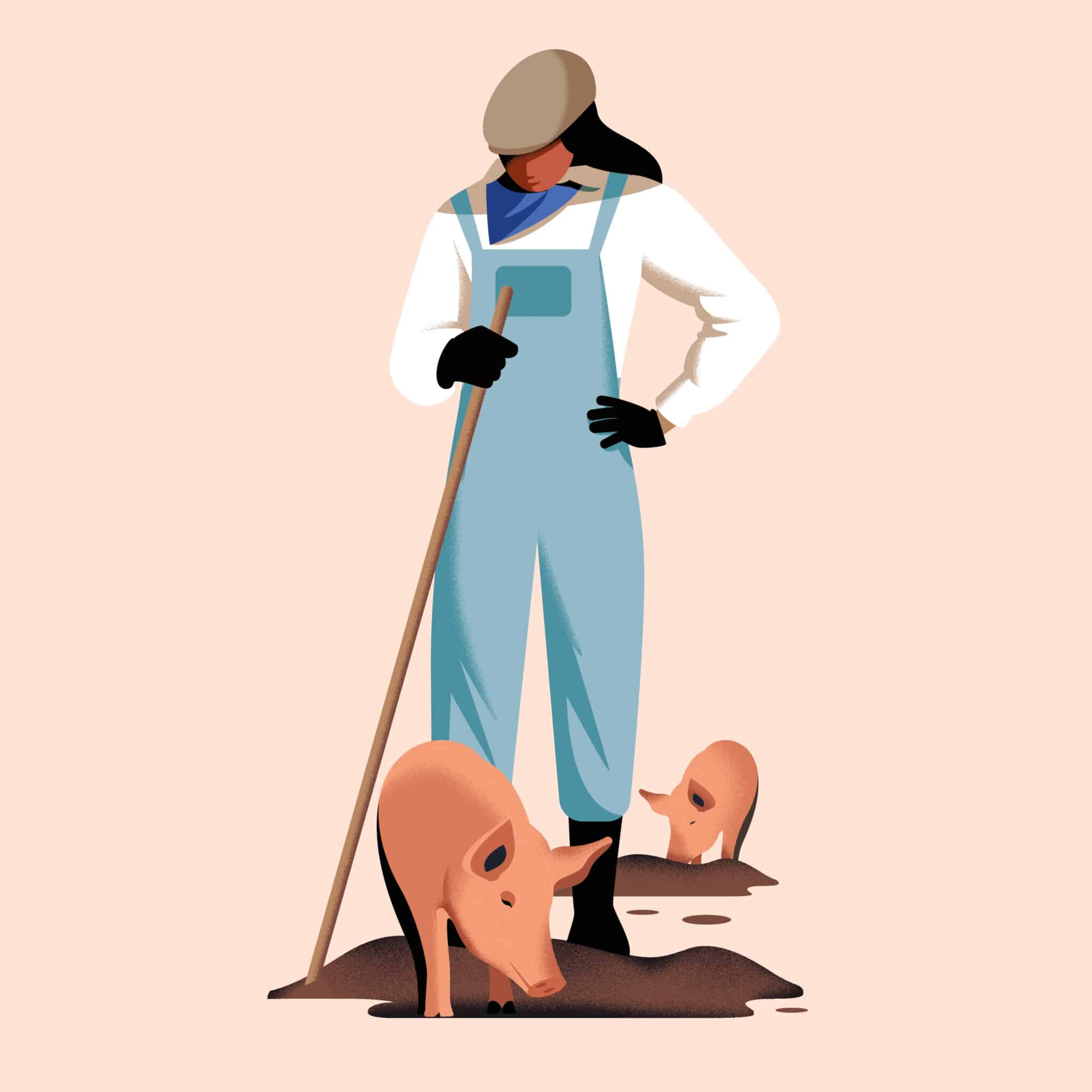The farmer
“The reason I set my business up was because of the unfairness in the supply chain. I sometimes liken it to a drugs gang regime, where you’ve got the big boss at the top and the little minions in the middle doing the dirty work. And they do exploit that power in the middle.
“Farmers are very transparent and have to show their audits for Red Tractor or RSPCA, and there should be that level of transparency further up the chain. The processor and supermarket know exactly what it costs to produce a pig; we don’t have a clue what cuts the processor is selling and no idea at all about pricing. All the time, the government says it’s been talking to the supply chain; what they mean is they’ve been talking to the CEO of Tesco, they’ve not been talking to the farmer. Very rarely do they actually speak to a farmer.
“Contracts need to be no less than 10 months. Some people are only given three months’ notice. One of my colleagues lost her contract purely for being too gobby – that’s just commercial retaliation.
For me, 15 years’ ago we were supplying a large processor and the product was going into Tesco. We were asked to go fully free range with a promise of a premium. Then a couple of weeks into the contract, after making all the investment into infrastructure, they decided there wasn’t a market for it and they weren’t going to pay us a premium. So I thought ‘bollocks to this, let’s go direct’, and that was when we established a brand. We have amazing relationships with all of our customers. That’s now one of the most enjoyable things that we do. They’re friends, rather than this big organisation that’s going to beat me with a whip. When I had a backlog, they all helped me out when I was at my wit’s end, and that’s what a working relationship should be like.
“What would help others have these conditions? A whistleblowing line would be good, to call out bad behaviour. The supply chain reviews are a good chance, but it’s actually really upsetting in this day and age that you have to put in legislation for people to act with just a bit of human decency. Payment terms are hideous; I think it takes 90 days for processors to pay farmers. Why does it take 90 days for the money to get back when we’ve already invested 10 or 15 months in advance? The retail price on the shelf is absolutely no reflection of what gets back to the farmer.
“Having seen Dad go through the peaks and troughs over the last 30 years, it was just enough; I want to be in control of my own destiny. It was definitely the right decision.”
Anna Longthorp, pig farmer, owner of Anna’s Happy Trotters and former supermarket supplier
The picker

“Most workers we know paid fees in coming to work on farms in the UK. It all starts at the point of recruitment. If you want to break the chain, you have to get to the roots. You can talk about farms, conditions. This is all important. But this research, if it is to be effective, has to consider the roots, and this begins with fees.
“The main problem is that ‘agents’ – brokers, middlemen – sell fairy tales to people about the UK, giving people a false dream. We must send information to new applicants, from Nepal, from anywhere, to not believe these scammers. Only you yourself can apply to the Seasonal Worker Visa. If they say they have representatives in official companies, don’t believe them! I have faced this problem. Later on, after applying, I came to know this: that I was a victim of fraud. I trusted that broker who sold me a lie. They say this everywhere, not just in Nepal. In India, too, and Indonesia. Everywhere. Every broker says the same thing: they have their representative at the licensed recruitment company.
“We need a solution to this, to make the process reliable and easy, so no one has to go through these brokers. It’s so deep, this scam. It’s deeper than the sea. I know how it works. So, there must be a better system, an authorised application system that can be properly controlled, with proper information. Otherwise, this will continue to happen. Not just in Nepal, but everywhere. What should be done to solve these problems?
“The UK government, if they want to hire people for the Seasonal Worker Visa, could give the opportunity via one authorised department of the country they are recruiting from. They must give a trusted authority, an official organisation, the ability to sponsor workers. If licensed recruitment agencies had connections with the Nepalese Department of Labour, they could hire people through that department, with clear information provided. This official public organisation, they could check to make sure people have not been scammed along the way: a regulated and safe way to recruit. They should also establish an information centre to go alongside this, to spread the correct and accurate information; to make it clear that people can only apply through the official department. They should advertise how many places there are, and make it a fair process.
“This would also help the UK, to stabilise the worker shortages, to create a fair system and put food back on the shelves. If they want to help their own farming sector, they must listen and take our advice. Otherwise, these fees and scams will simply continue everywhere they go to recruit.
If the system is fair and clear, workers will come to the UK with a fresh mind, a positive attitude, contribute to the economy and solve the problems of food and labour shortages. And they will return as well; reliable for all parties. We have to look after labour. The recruitment agencies need to look after labour, and not ignore us, like they did.”
Anonymous Nepali seasonal worker recruited to work on UK farms. Collated for the report by Landworkers’ Alliance, ‘Debt, Migration and Exploitation’.
The retailer

“Our strapline is ‘Fair for all’ and in very simplistic terms that is our ethical stance. It’s about relationships, gratitude and respect throughout that chain.
“What we’re working towards is people first; people and planet. They go hand in hand. It certainly starts with the expectation in our contracts of how we conduct ourselves with one another, even down to email language. So in a very open-hearted way,just reminding people about having a generosity of spirit towards each other. That is where it starts, because once you foster that in your team, that helps people understand how they deal with a supplier or a customer. And as the founder and MD, that starts with myself: how I come into work in the morning and what face I choose to put on. All that kind of stuff makes a difference, and sets a tone for others and how we do meetings. One thing we do is go round the room to say something we’re grateful for, because it’s all part of a culture, and culture is one of the most difficult things to shift in business.
“With suppliers, it’s fairly straightforward. It’s so hard in the primary production area of food, and they’re so badly treated in some ways. We work really hard to make sure they’re long-term relationships, and when things go wrong we sit down in a respectful manner, and we’re not shouty about it. It’s [about] trying to be forgiving and understanding, and we’re all in this together. With customers in store, it’s about welcoming people with respect. Sometimes we build great new bonds with customers and they become regulars and their average spend goes up. Other times, they’re eyes down and just doing what they need to do. The diversity is huge, but our job is to be welcoming and open hearted. But I won’t hide the fact that we are in a really tough market. The experience of Covid followed by the cost-of-living crisis has raised people’s sense of fear and caution.
“While we have a great model, we’re having to work really hard to be sustainable. It means trying to compete with the supermarket model of giving people lots of offers and reasons to come back, and being highly competitive wherever we can.
“Whether we like it or not, the organic market has come down quite a bit; the demand is nothing like it was even a couple of years ago. Going into the mainstream grocery market, it is quite hard to see how you can get them to wake up, because it is about changing the whole paradigm of profit and shareholder, which is their biggest driving force.
“But if that’s asking too much, then [they could] genuinely bring in the local. You’ll go to a French supermarket carpark and you’ll see half a dozen stallholders turn up every week. It’s more than allowed, it’s encouraged. You would never see that in our UK supermarket carparks, and yet the customers would love it. Do it with the Cheddar strawberry grower – get them to come in, and they take all the money for that day. It just gives people something to hope for, in a funny kind of way.”
Phil Haughton, founder of the Better Food chain of shops in Bristol
The eater

“I feel food choice is very complicated. We all believe that it is a simple matter of walking into a supermarket or a store, picking what we need or what we want and then going home. But I don’t feel like our choices are necessarily our own.
“I believe that our choices are influenced by our environment and by the places that we go to. So for example, if you are a low income earner, there are a lot of constraints in what you can buy, what you can afford and how you feed your family. Low-income earners will be more likely to pick cheaper foods to get value for money, whereas those that are a little bit more affluent are able to go to places that offer healthier choices.
“I see that it all starts with the understanding that we are part of the system and that our individual choices feed into the system. As consumers, we generally seek convenience and low prices, which in themselves aren’t bad, but ends up putting pressure on the producers. I’m drawn to the idea of putting pressure on businesses, interest groups and the government to make significant change. I’d like to see businesses changing their methodology and government holding them accountable through various measures.
“I have seen glimpses of fairer food supply chains when I was previously a member of an organic food cooperative. Local farmers got together to supply fresh fruit, vegetables and meat locally. The food was available for supply at a farm shop they set up and available for local delivery. Excess produce was available at a secondary location within the local town, with that set up as a food bank but styled as a farm shop to reduce the stigma of using a food bank. This cooperative also worked with local butchers and bakers.
“What impressed me about this system was how food was distributed in a manner that benefited everyone. Whether you were the farmer, consumer, retailer, distributor or a general member of the local community, the cooperative worked to both benefit and incentivise everyone. It is generally taught that businesses exist to make money. The common misconception is that the majority of them make money at the detriment of providing positive value to society.
“I believe that businesses in the food system need to adopt the concept of being collaborative and working to benefit everyone in the system. By working in a similar way to the cooperative above and committing to be part of a local community in some form, there could be a lot more positivity in the food system, which would allow businesses to make profits while supporting each other, supporting the economy and supporting communities.”
Sam, a food citizen and member of the public. As collected for the national conversation on food (#TheFoodConversation).
This article was originally published in the latest print issue of Wicked Leeks, out now. You can read the full magazine online for free.












0 Comments